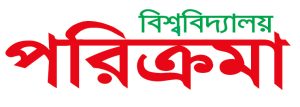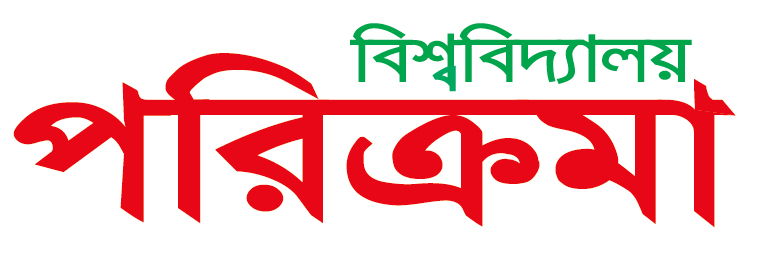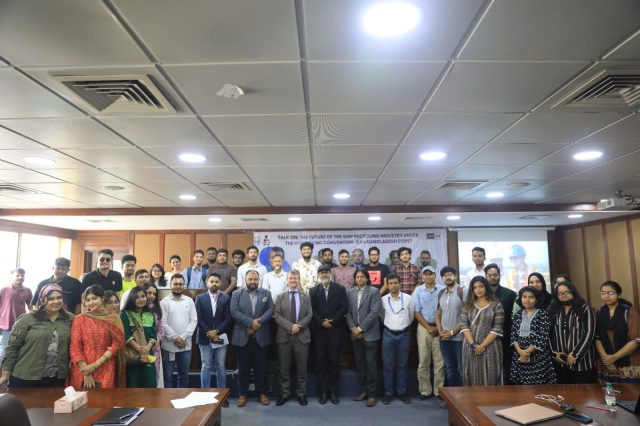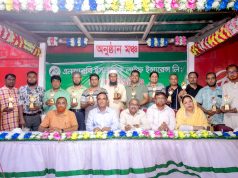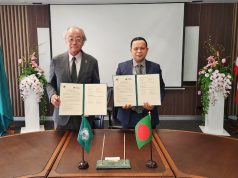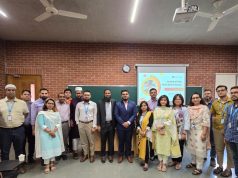
Porikroma Desk : The Department of Law, North South University (NSU) successfully organized a seminar titled ‘The Future of the Ship Recycling Industry Under the Hong Kong Convention. Can Bangladesh Cope?’, held on March 27, 2024, Wednesday at 11:00 AM. The event took place at the NSU Moot Court Room (NAC 616).
The seminar aimed to critically examine Bangladesh’s ship recycling industry, how Bangladesh faces challenges in meeting the rigorous standards set forth by the convention in the global market and how to cope up with this. The seminar featured esteemed speakers and guests, including chief guest and speaker His Excellency Mr. Espen Rikter-Svendsen Ambassador, The Royal Norwegian Embassy. Treasurer and Pro Vice Chancellor (IC) of North South University Dr. Abdur Rob Khan was present as a special guest. Chair and Senior Lecturer of the Department of Law, NSU, Barrister Arafat Hosen Khan delivered the opening remarks. Dr. Ishtiaque Ahmed, Associate Professor at the Department of Law, North South University, was present as discussant, while Saquib Rahman, Senior Lecturer at the Department of Law, North South University, moderated the event.
Prominent figures from academia, including Prof. Helal Ahammad, Dean of the School of Business & Economics, Dr. Md. Rizwanul Islam, Professor at the Department of Law, North South University, Md. Rajab Ali, Senior Lecturer at the Department of Law, North South University were also in attendance.
The seminar commenced with a comprehensive overview of Bangladesh’s shipbreaking industry, delivered by His Excellency Mr. Espen Rikter-Svendsen. He highlighted Bangladesh’s position to thrive in the ship recycling industry under the Hong Kong Convention. With the recent ratification of the Convention in June 2023, Bangladesh has solidified its global standing in sustainable ship dismantling practices, maintaining its 1st position in the industry.
Mr. Rikter-Svendsen emphasized the significance of the Hong Kong Convention, established in 2009, which provides essential guidelines for safe and environmentally sound ship recycling. Bangladesh’s ratification of the Convention marks a significant milestone in the nation’s maritime sector, meeting all three criteria outlined.
Mr. Rikter-Svendsen discussed Bangladesh’s strategic positioning to address associated challenges regarding the Basel Convention’s recognition of ships as waste. He stressed the importance of tailored policies to meet Basel Convention standards, ensuring eligibility to break European ships.
To address emerging challenges in the shipbreaking industry, Mr. Rikter-Svendsen outlined key targets for Bangladesh, including sorting out legal uncertainties regarding the European Union Ship Recycling Regulation (EUSRR) and the Basel Convention. He emphasized the importance of the Treatment, Storage, and Disposal Facility (TSDF) coming online, the ongoing upgrading of Bangladesh’s yards, and the closure of non-compliant yards. Bangladesh must showcase its new capacities to the world to maintain its position as a critical player in the industry.
Dr. Ishtiaque Ahmed provided additional insights, encouraging stakeholders to support initiatives promoting sustainability, safety, and compliance. He emphasized adherence to international conventions and fostering innovation to position Bangladesh as a leading hub for responsible ship dismantling practices.
Barrister Arafat Hosen Khan underscored Bangladesh’s coastal region’s environmental and economic benefits and affordable labor in the shipbreaking and recycling business. He highlighted how this sector contributes to solving the nation’s unemployment issues across all population levels.
The seminar concluded with a lively Q&A session, where attendees discussed how Bangladesh’s shipbreaking industry can further grow and how government policies can favor the industry. Participants also explored the impact of diplomatic relations on the industry.
Overall, the seminar provided a valuable platform for interdisciplinary dialogue and collaboration, with participants expressing a shared commitment to promoting positive change in Bangladesh’s shipbreaking industry.
